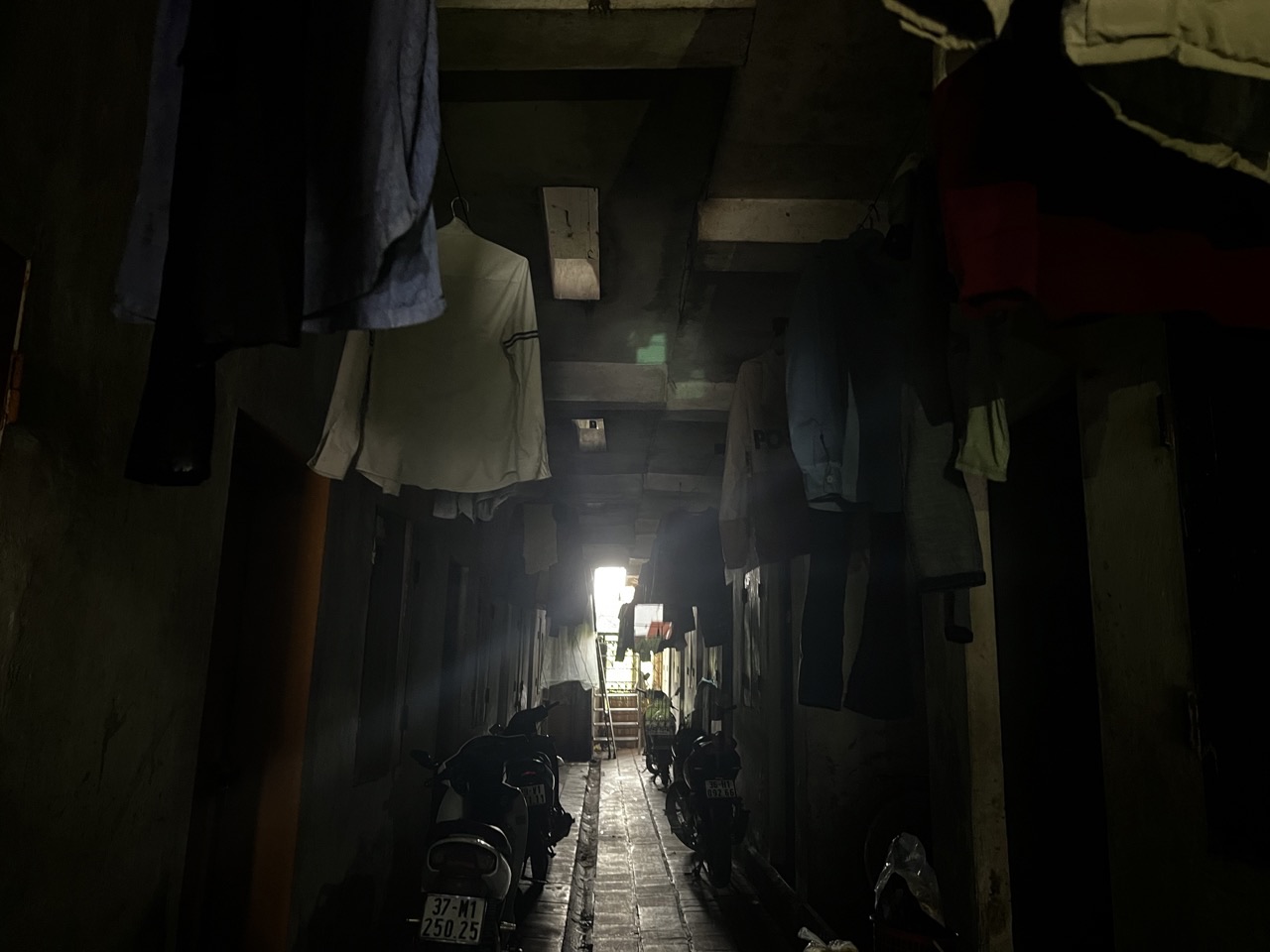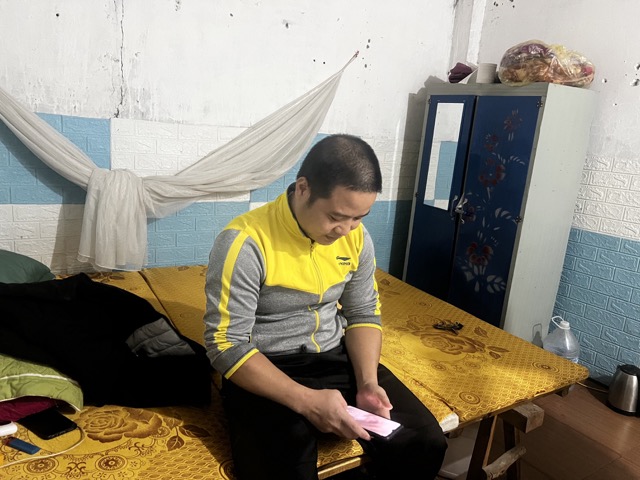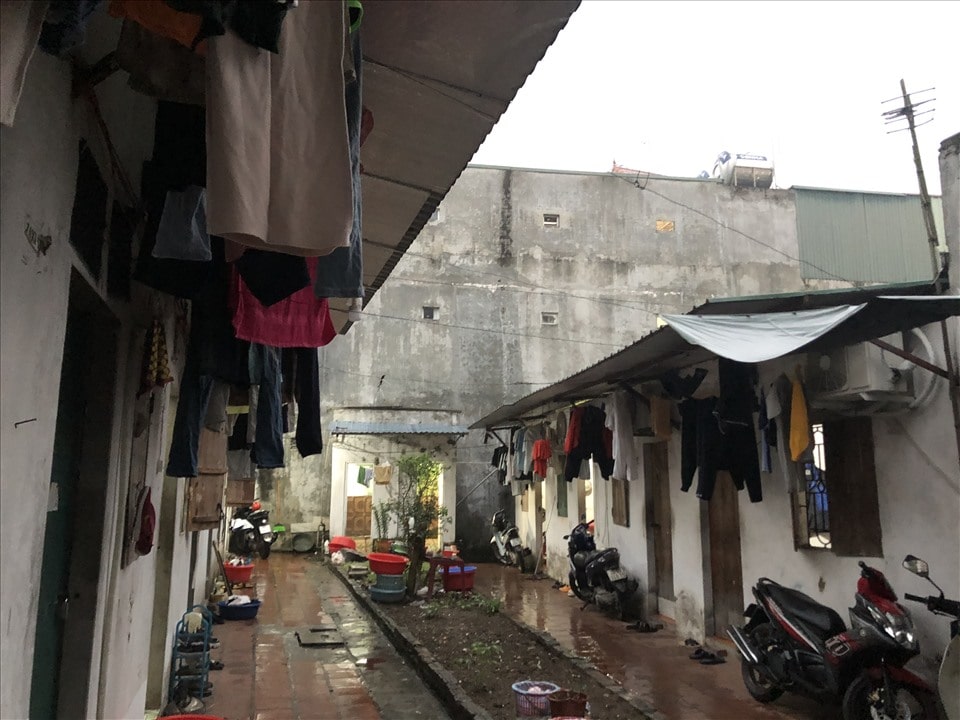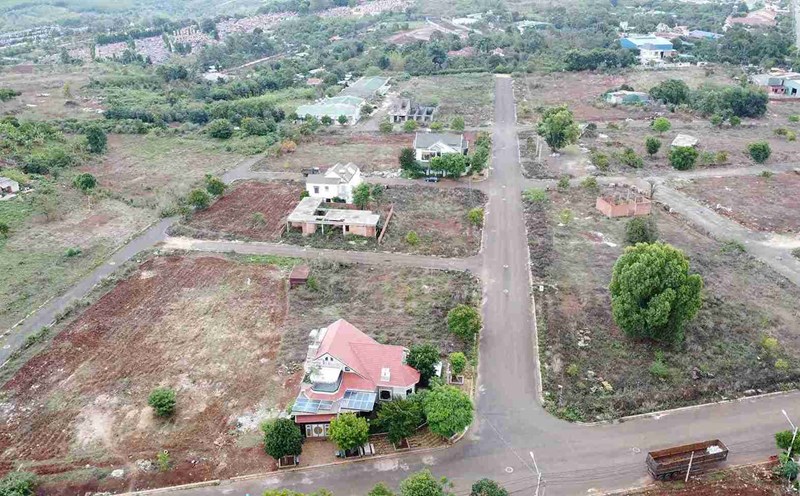According to the report of the Hanoi City Labor Federation, there are currently about 167,000 workers working in industrial parks, export processing zones and high-tech zones in the area.

Of these, more than 60% of workers have to rent accommodation in surrounding residential areas, most of whom are spontaneous, cramped boarding houses with unsafe living conditions and not ensuring environmental hygiene.
In reality, many boarding houses in the area were built decades ago, mainly level 4 houses with corrugated iron or fibro cement roofs.
The summer is as hot as a "tsui", the winter is damp and leaky. The boarding house is often divided into small rooms, with an area of only about 10-15m2.
In front of the rooms, tenants take advantage of the corridor or common space to dry clothes and cook with mini gas stoves, which poses a very high risk of fire and explosion.
Ms. Nguyen Thi Loan (from Phu Tho) - a worker at Panasonic Vietnam Co., Ltd. renting a room in Hau Duong village (Kim Chung commune, Dong Anh district), said that the couple work as workers, earning a combined monthly income of about 15-16 million VND.
In addition to food and education for children, nearly half of the money is for accommodation and living expenses.
Because of her large family, Ms. Loan rented an additional room next door, which was only less than 10 square meters wide, to store things and set up a kitchen.
"The furniture was piled up, the path was packed, and there were times when I was worried about fire and explosion, but there was no other way" - she shared.

Similarly, Mr. Bui Van Luan (from Hoa Binh) and his wife and children are renting an old room near Thang Long Industrial Park for 500,000 VND/month.
Small rooms with moldy walls and rusty corrugated iron roofs, but cheap, are still "undated" choices. Mr. Luan hopes to work more shifts to save money and find more spacious accommodation for rent at a price of 1.1 - 1.3 million VND.
One of the reasons why workers have to accept living in unsafe conditions is the lack of social housing supply exclusively for workers.
Meanwhile, although the rental price at spontaneous rental areas is low, it does not ensure the quality of life, affecting the health and long-term spirit of workers.

Also according to the report of the Hanoi City Labor Federation, with an average income of 7.7 million VND/month, most workers have to wear around belts and choose cheap accommodation to save costs.
However, having to live in an environment with potential risks of fire and explosion, poor environmental sanitation, and lack of living space for families and young children are posing an urgent requirement for housing development policies for workers.
Both Ms. Loan and Mr. Luan believe that there needs to be stronger participation from the government and businesses in building and renovating boarding houses, developing social housing, and low-cost accommodation areas but ensuring minimum living conditions for workers.








